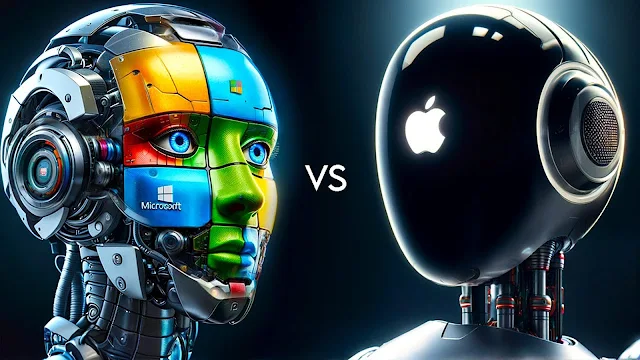
Spotify's AI-Driven Playlist Personalization
In a move that blends music preferences, moods, and genres, Spotify has introduced an innovative AI feature that allows users to create personalized playlists with just a voice command. This cutting-edge technology enables Spotify Premium subscribers in the UK and Australia to explore a world of music tailored to their specific desires, whether it's finding the perfect "vampire hunter" soundtrack or discovering new songs that match a rainy-day reading mood.
The AI-powered playlist creation feature is currently in a testing phase, but it promises to revolutionize the music discovery experience. Users can get as specific as they want, mentioning genres, artists, decades, or even using emojis to describe their desired vibe. The AI then curates a playlist of 30 songs that fit the user's preferences, with the ability to exclude songs they don't like and refine the selections over time.
This innovative feature not only saves time and effort compared to manually building playlists but also opens up new avenues for music exploration. By leveraging the power of AI, Spotify is empowering its users to discover music that aligns perfectly with their ever-changing moods and preferences, making the listening experience more personalized and enjoyable than ever before.
Microsoft's AI-Powered PCs: Challenging Apple's M3 MacBook Air
In the realm of personal computing, Microsoft is gearing up to unveil its latest AI-powered PCs, which are poised to challenge the dominance of Apple's M3 MacBook Air. Powered by Qualcomm's Snapdragon X Elite processors, these next-generation AI co-pilot PCs are expected to outperform the M3 MacBook Air, particularly in tasks that require significant computing power, AI-driven applications, and even running apps designed for different types of processors.
Microsoft has long been waiting for Qualcomm to develop chips capable of delivering a seamless Windows experience on ARM-based devices. With the Snapdragon X Elite processors, the tech giant believes it has found the solution to bridge the gap between ARM and x86 architectures, allowing for better compatibility and performance across a wide range of applications.
These AI-powered PCs will feature a host of innovative capabilities, including an AI Explorer app that helps users effortlessly navigate their digital archives, enhanced video streaming experiences, and the ability to create AI-generated images. Furthermore, Microsoft is working on integrating AI-driven contextual understanding to provide users with even more personalized and intelligent assistance.
The unveiling of these next-generation AI co-pilot PCs on May 20th, just before Microsoft's annual developer conference, signals the company's bold vision for the future of personal computing. By leveraging the power of AI, Microsoft aims to redefine the user experience, positioning its devices as formidable competitors to Apple's offerings and paving the way for a future where AI-driven capabilities are seamlessly integrated into our daily computing tasks.
AI-Driven Breakthroughs in Antibiotic Discovery
In the crucial battle against antibiotic-resistant superbugs, science has made a remarkable breakthrough with the help of AI. Researchers from McMaster and Stanford universities have developed a groundbreaking AI model called SyntheMol, which can create new drug compounds from scratch, offering hope in the fight against these deadly germs.
The rise of antibiotic-resistant bacteria is a global health crisis, with over 4.95 million people dying worldwide in 2019 due to these superbugs. In the United States alone, they cause more than 2.8 million infections and 35,000 deaths annually. Traditionally, the process of developing new antibiotics has been arduous and expensive, taking 10 to 15 years and costing around $2.6 billion, with most new drugs never making it past the final approval stage.
Enter the power of generative AI, a technology that can create novel compounds never seen before. The SyntheMol model, developed by the research team, taps into a vast library of 132,000 possible building blocks to generate new drug candidates. By mixing and matching these molecular components in innovative ways, the AI was able to identify 150 top prospects, 58 of which were successfully synthesized in the lab.
From these 58 new compounds, the researchers found six promising drug candidates that could effectively fight the antibiotic-resistant bacterium Acinetobacter baumannii without posing harm to humans. This breakthrough demonstrates the transformative potential of AI in accelerating the drug discovery process, providing hope in the ongoing battle against superbugs and the devastating impact they have on global health.
The Expanding Horizons of AI-Powered Innovations
The examples showcased in this blog post highlight the remarkable strides that AI is making across diverse industries, from personalized music experiences to life-saving advancements in pharmaceutical development.
Spotify's AI-driven playlist creation feature is a prime example of how AI can enhance user engagement and discovery, empowering individuals to explore music that perfectly aligns with their unique preferences and moods. This innovation not only saves time and effort but also fosters a more personalized and enjoyable listening experience.
On the computing front, Microsoft's AI-powered PCs aim to challenge the dominance of Apple's M3 MacBook Air, leveraging the power of Qualcomm's Snapdragon X Elite processors to deliver superior performance, particularly in AI-driven tasks and applications. This move signals Microsoft's commitment to integrating AI-driven capabilities into the core of the personal computing experience, paving the way for a future where AI-powered assistants seamlessly enhance our daily computing tasks.
The most profound impact, however, can be seen in the groundbreaking work of researchers who have harnessed the power of generative AI to revolutionize the drug discovery process. The development of the SyntheMol model, which can create novel antibiotic compounds from a vast library of molecular building blocks, offers hope in the fight against antibiotic-resistant superbugs, a pressing global health challenge.
These examples underscore the transformative potential of AI, as it continues to redefine industries, enhance user experiences, and tackle some of the most pressing issues facing humanity. As the technology evolves, we can expect to witness even more remarkable advancements that will shape the future and improve the lives of individuals around the world.





.jpg)


0 Comments